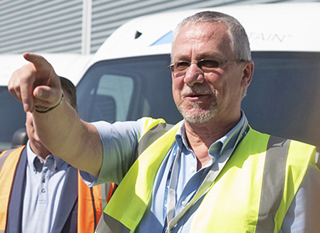The deadline for fleets to have their say on the Government’s Net Zero Review is Thursday (October 27).
The review, commissioned by the Department for Business, Enterprise and Industrial Strategy (BEIS), aims to ensure that delivering the net zero target does not place undue burdens on businesses or consumers.
The review will report at the end of 2022.
As part of the review, the Chair, Chris Skidmore MP, is consulting widely with a diverse range of stakeholders, including investors, industry, and experts in different fields, through a series of roundtables and direct meetings.
That is being supplemented with a broad call for evidence, giving the general public, businesses and other organisations a chance to share their views on the whole economy transition, maximising net zero growth opportunities, the challenges to address in this review and the future of net zero.
Skidmore said: “Everyone in the country has a stake in the UK’s transition to net zero. It doesn’t matter if you live in Argyle or Aberystwyth, Carlyle or Canterbury, our lives will need to change, whether that means the way we travel to work, heat our homes or run our factories.
“The decisions and actions we take today will impact consumers, employees and businesses alike, in cities, town and rural communities all over the country. That’s why I want to hear the views of as many people as possible.
“I want to ensure that net zero isn’t just viewed as the right thing to do for our environment but becomes an essential driver of economic growth – and a win-win for Britain and the world.”
While the UK’s target to reach net zero by 2050 remains in place, the review comes in response to major changes to the economic and political landscape, with Russia’s illegal invasion of Ukraine, historically high global energy prices and high inflation; all placing huge pressures on British households and businesses.
Skidmore’s review aims to identify new ways to deliver the legally binding target by 2050 in a way that is pro-business and pro-growth.
It will examine the most economically efficient path to reaching net zero, while maximising innovation, investment, exports and jobs.
























Login to comment
Comments
No comments have been made yet.